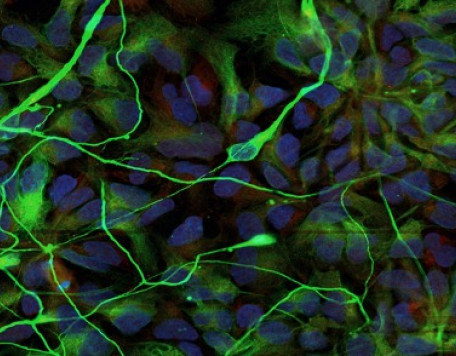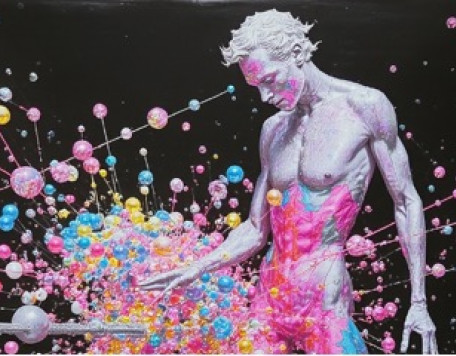© Pint of Science, 2025. All rights reserved.
Our speakers will take us on a journey down to the atomic and molecular level, where things get unimaginably small. They will explain how the physics of the super-small can change the way we store information and reveal unexpected things, such as chaos being necessary for the function of life.
Please note there are stairs up to the venue so it may not be accessible for people with impaired mobility.
Please note there are stairs up to the venue so it may not be accessible for people with impaired mobility.
Precious Power: Our dependency on high dissipation electronics and rare metals
Dr. Oscar Cespedes
(Associate Professor, School of Physics)
Our society has come to rely on ever-smaller gadgets with increased memory capacity. However, electronics are rarely recycled, and the carbon footprint of the internet –our main point for data storage - already exceeds that of air travel. Shockingly, 90% of all the data ever generated has been produced in the last two years. The magnetic devices we use to store data can be greatly improved by using certain materials. However, these are expensive, dangerous to process and difficult to recycle. Here, I will discuss how we can use organic molecules instead, in a more eco-friendly way.
Bawdy Biomolecules
Dr. Sarah Harris
(Lecturer, Biological Physics)
You might assume that as things get smaller, they get less ridiculous. This is not true in biology. Even down at the molecular level, the same bumping, grinding, sliding, writhing and fumbling, as present in the macroscopic world, prevails. For our biomolecules, this chaos is necessary for them to perform their vital jobs within the cell. Without disorder, all activity would stop. I will use results from supercomputer simulations to show why silliness and disarray are just as necessary to life at the molecular level as they are to informing our everyday experience of the world.
Map data © OpenStreetMap contributors.
Other Belgrave Music Hall and Canteen events
2025-05-20
Unlocking Minds: From Cells to Cinema
Belgrave Music Hall and Canteen
1-1A Cross Belgrave Street, Leeds, LS2 8JP, United Kingdom
2025-05-19
Smashing Atoms, Computing the Quantum
Belgrave Music Hall and Canteen
1-1A Cross Belgrave Street, Leeds, LS2 8JP, United Kingdom






